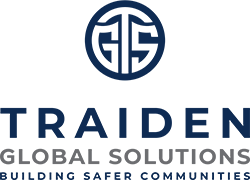Home Healthcare Workers
Home healthcare workers provide a valuable service to clients that need in-home healthcare and help with basic living tasks. The variety of chores and work environments you encounter require you to think about your work habits, activities, and safety.
Get training to be clear on the tasks you will perform and the equipment you use. If you have questions about the safety of a procedure, client, or location, ask your supervisor. Report accidents/injuries for follow-up immediately. Contact your supervisor to correct hazards in a client’s home, handle inappropriate client behavior, or get the tools you need.
Evaluate the client’s home for hazards. Good housekeeping prevents slips, trips, and falls. Adequate lighting helps you see what you are doing. Evaluate the neighborhood for security, crime, and outdoor lighting, etc. Know the location of exits, smoke detectors, fire extinguishers, phones, etc. Discuss firearms and other weapons that may be present at the client site, with both your supervisor and the client. Ask the client to remove weapons from the room while you are present if the situation is uncomfortable for you.
Animal hazards include bites, scratches, and allergies. Pets can be tripping hazards if they lay down behind you or cross your path when you don’t expect it. Some animals may become aggressive if you approach and begin treatment on a client. Confine animals to another room while you are onsite, if possible.
Home healthcare is a physical job. Making beds, feeding and moving clients, doing household cleaning and laundry, and carrying supplies can cause strains and sprains if you do them incorrectly. Keep your back straight when you lift or do chores. If you can, bring your work close to you and at a comfortable working height. For safety, work with your supervisor and the client’s physician to plan client lifts and get assistive equipment like slider chairs, blankets, wheelchairs, lifting posts, and fully-assisted lifting equipment.
Get training and wear personal protective equipment such as gloves, a gown, and eye/face protection to prevent skin and mucous membrane exposures to client blood, body fluids, and wastes. Wear a face mask to prevent airborne disease exposures. Wash your hands often. Clean and sanitize work surfaces and practice good housekeeping for wastes and contaminated materials. Use and dispose of sharps safely. Immediately report exposures and needlesticks and get medical follow-up.
Some chemicals, medications, and intravenous drugs can be dangerous if you get them on your skin, breathe them, or use them improperly. Use only household strength cleaners; read and follow the instructions. Don’t use materials from unlabeled containers; you don’t know what they are or their concentration. Handle oxygen carefully; it can be a serious fire hazard. Keep sources of flame away from oxygen. Don’t allow smoking in the same room. Store oxygen tanks upright, secured to a cart or wall, and in well-ventilated areas.
Be aware of your surroundings for personal safety. Keep the doors and windows of your car closed and locked. Don’t bring valuables to work with you or leave them in the car. Carry a cell phone that is pre-programmed with local emergency phone numbers. Verbal attacks, threats, and physical attacks should not be tolerated. Leave a situation if you don’t feel safe; notify your supervisor and summon emergency help if needed.
The above evaluations and/or recommendations are for general guidance only and should not be relied upon for legal compliance purposes. They are based solely on the information provided to us and relate only to those conditions specifically discussed. We do not make any warranty, expressed or implied, that your workplace is safe or healthful or that it complies with all laws, regulations or standards.
